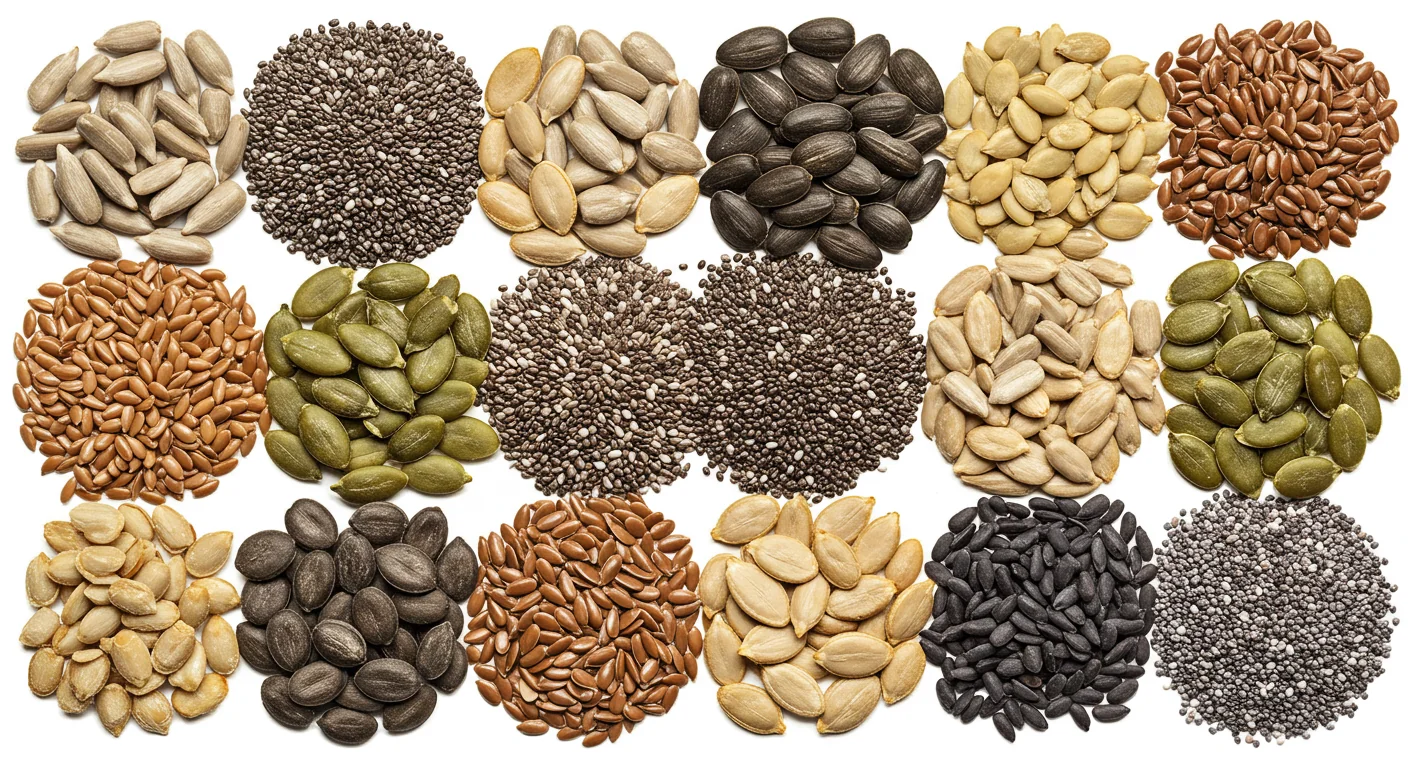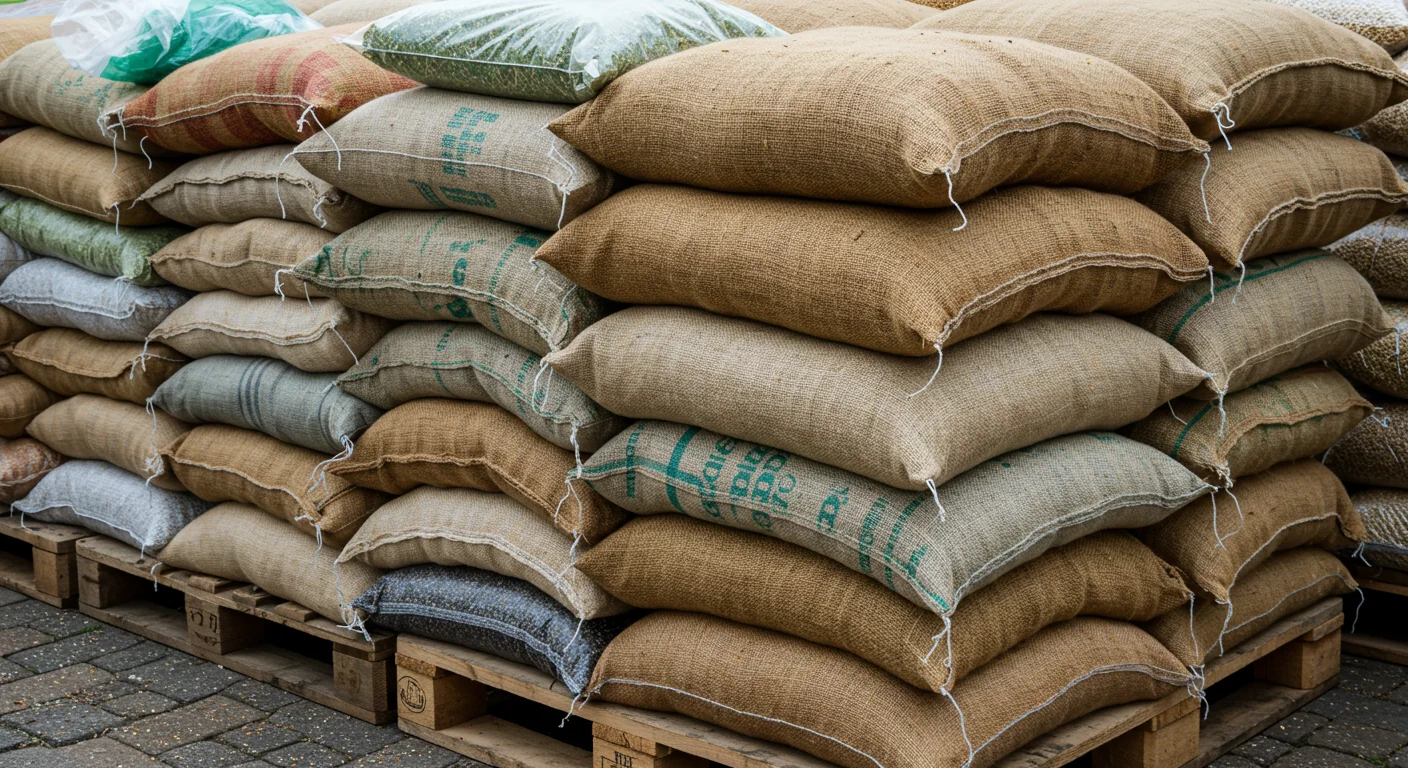
Shipping Seeds
Explore a wide range of shipping solutions for seeds with FreightCenter
Our team of logistics experts guarantee that your shipment is handled by professionals who understand the requirements and precautions necessary for seed transportation.
Shipping Seeds Made Easy with FreightCenter
Shipping seeds requires careful planning, handling, and expertise, and at FreightCenter we provide just that. Shipping seeds through freight is a critical part of agriculture and horticulture, ensuring that a diverse variety of seeds are distributed across regions to support conservation, food production, and biodiversity. From proper packaging to the need for temperature-controlled environments, it’s essential to choose a reliable freight service that can meet the unique needs of seed shipments.
Let FreightCenter be your trusted partner in shipping seeds. Whether you’re a large agricultural producer or a small gardening enthusiast, we provide the resources you’re looking for. With our expertise, extensive carrier network, dependable delivery services, and fantastic customer service, you can trust us to get your seeds to their destination securely, on time, and with the utmost efficiency.
Thousands of businesses trust FreightCenter to move their freight faster, smarter, and cheaper! From unbeatable rates to top-notch service, our customers are raving about their shipping success.
See why they keep coming back!
Award-Winning Service, Trusted by Shippers Everywhere!
- 2021, 2017 & 2016 Food Logistics’ Top Green Providers
- 2021 & 2018 Supply & Demand Chain Executives’ Pros to Know: Matthew Brosious
- 2020 & 2019 Top Food Logistics’ 3PL & Cold Storage Provider Award
- 2020 & 2019 Business Observer’s Top 500 Companies on the Gulf Coast
- 2020 & 2017 SmartWay® Transport Partner
- 2020 & 2017 Food Logistics’ Champions: Rock Stars of the Supply Chain
- 2020 Best of Palm Harbor Awards for Local Businesses
- 2017 Green Supply Chain Award from Supply & Demand Chain Executive
- 2017 Tampa Bay Business Journal Heroes at Work
- 2016, 2015, & 2012 Food Logistics Top 100 Software and Technology Providers
- 2013 Tampa Bay Business 100 by Tampa Bay Business Journal
- 2013 Top 100 Great Supply Chain Partners by SupplyChainBrain
- 2012 TIA Samaritan Award Honorable Mention
- 2012, 2011 & 2010 TBBJ Fast 50 Recipient
- 2013, 2011, & 2010 Diversity Business Top Businesses

Choose FreightCenter For All Your Seed Shipments
Compliance with Regulations
We help ensure your shipments meet both international shipping and agricultural regulations, including customs paperwork, permits for seed shipments, and phytosanitary certificates. We will assist you in making sure you have all proper documentation and that it is filled out accurately.
Access to Global Shipping Network
With FreightCenter’s extensive carrier network, we can ship seeds domestically and internationally to nearly any destination. Whether you’re sending seeds across the country or to another continent, we offer reliable and cost-effective international shipping options.
Environmentally Friendly Options
For customers seeking sustainable shipping solutions, FreightCenter offers environmentally friendly options, including carbon-neutral shipping choices, to minimize the environmental impact of transporting seeds.
FreightCenter Offers Top-Notch Transportation Methods For Shipping Seeds
When it comes to shipping seeds, FreightCenter offers top-notch transportation methods for any requirements your specific shipment has. Whether you’re shipping domestically or internationally, we work with trusted carriers that offer tailored shipping solutions for your seed shipment.
Bulk Shipping Services: Shipping seeds in bulk? FreightCenter has you covered. Depending on the size and destination of the shipment, bulk shipping involves using trucks, trains, ships, or planes and ensuring the freight is in customized packaging. Bulk shipping services provide and efficient and cost-effective solutions for transporting large quantities of seeds.
Rail Freight: Rail freight is an efficient and cost-effective option for shipping large quantities of seeds over long distances, especially for domestic shipments. When using rail freight, seeds are typically loaded into a train car. With reliable and secure transport, rail freight can handle bulk seed shipments, providing a stable and environmentally friendly alternative to road or air transport.
Barrel Shipping: Barrel shipping is an excellent option for securely transporting large volumes of seeds, especially when bulk quantities need to be protected from environmental factors like moisture and pests. These sturdy, sealed barrels provide a reliable solution for preserving seed quality during transit, offering added protection against damage. Ideal for long-distance or international shipments, barrel shipping ensures that seeds arrive safely and in optimal condition.
Full Truckload (FTL): Full truckload (FTL) shipping is a highly efficient option for transporting large quantities of seeds, as it dedicates an entire truck to your shipment, ensuring fast and direct delivery. FreightCenter believes this method is ideal for bulk seed shipments, offering greater security and reduced risk of damage since the seeds are not handled multiple times.
Temperature-Controlled: Temperature-controlled shipping services are essential for transporting seeds that require specific climate conditions to remain viable during transit. By maintaining a consistent temperature throughout the journey, these services help preserve the seeds’ quality and prevent spoilage or damage from extreme heat or cold. FreightCenter works with multiple carriers that offer top-of-the-line temperature-controlled services.
We strive to provide value to our customers by offering tailored shipping solutions that address the specific needs of transporting seeds, while handling everything from straightforward to complex shipping requirements with unmatched knowledge and step-by-step guidance.
Accurate freight classification is key to receiving fair and transparent shipping rates. Our easy-to-use Freight Class Calculator helps you determine the correct freight class for your shipment based on size, weight, and product type. This tool simplifies the quoting process and ensures you avoid costly reclassification fees.
Your seeds are valuable, and protecting them during transit is crucial. FreightCenter offers customizable freight insurance options to give you peace of mind in the rare events of damage or loss, our insurance plans ensures you're covered, minimizing risks and financial impacts.
Stay in the know with real-time tracking for your shipment. FreightCenter's tracking tools allow you to monitor the location and status of your freight, providing updates, and ensuring on-time delivery. With complete visibility, you can plan and manage your operations with confidence.
For businesses shipping large quantities of seeds, FreightCenter offers volume shipping discounts. By consolidating your shipments or working with our network of carriers, you can lower costs without sacrificing realiability or speed. This is ideal for regular large-scale shipments.


FreightCenter Offers Seed Shipping Expertise
Here at FreightCenter, we recognize the importance of delivering your seed shipment on time. With our 25+ years of experience in the transportation and logistics industry, we offer specialized shipping solutions to guarantee that seeds are appropriately packaged, transported, and delivered to their destination.
We partner with trusted carriers that have the knowledge and expertise of what it takes to handle bulk shipments. We put high-quality customer service that doesn’t break the bank first. We offer competitive rates from top carriers so that you receive the services you need at the price you want. to find out which shipping option is best for you and your seed shipment, call our expert freight agents today at (800)716-7608.
FAQ: Shipping Seeds

Q. Do I need special packaging to ship seeds?
Yes, it’s important to use packaging that protects the seeds from moisture, temperature changes, and pests. Vacuum-sealing, padding materials, and moisture-proof bags are great choices to ensure the seeds are transported safely.
Q. Can FreightCenter ship seeds internationally?
Yes, FreightCenter can ship seeds internationally. We will work with you to check the regulations of the country you are shipping to. Many countries have strict rules about shipping seeds to prevent
Q. What are the shipping regulations for seeds?
Shipping regulations vary by country or region, but they must comply with plant health regulations and may require phytosanitary certificates, permits and other documentation. FreightCenter will work with you every step of the way to ensure your seed shipment complies with all regulations.
Q. How does FreightCenter ensure my seeds arrive safely?
FreightCenter works with top-notch and dependable carriers with experience in shipping agricultural products, while also providing tracking tools so that you can track your shipment from pickup to delivery.
Q. How much does it cost to ship seeds with FreightCenter?
The cost of shipping seeds depends on factors such as package size, weight, destination, and shipping method. FreightCenter offers competitive rates, and we can help you choose the most cost-effective shipping option for your needs.
Q. How long does it take to ship seeds with FreightCenter?
Shipping times for seeds vary depending on the shipping method and destination. Domestic shipments typically take 3-7 business days, while international shipments may take longer, depending on customs processing and distance.
Q. Do seeds need to be inspected before shipping?
Yes, some seeds may require inspection before shipping, especially if they are being shipped internationally, to ensure the seeds are free from pests or diseases.
Q. How does FreightCenter ship temperature-sensitive seeds?
FreightCenter offers temperature-controlled shipping services for your seeds that need climate control during transit. We offer refrigerated trucks, rail cars, and insulated packaging options to protect them from extreme temperature changes.
Q. Can I ship seeds in bulk with FreightCenter?
Yes, FreightCenter works with reliable carriers that offer services for shipping seeds in bulk.
Q. Can seeds be shipped in cold weather?
Yes, seeds can be shipped in cold weather, but it’s important to use insulated packaging to prevent damage from freezing temperatures.
Q. Does FreightCenter offer insurance for shipping seeds?
Yes, FreightCenter does offer insurance options for shipping seeds. While it isn’t required, it is highly recommended to give you peace of mind and protect your seeds from damage, loss, or theft.
Q. What should I do if my seed shipment is damaged during transit?
If your seeds are damaged during shipping, immediately contact the shipping carrier and file a claim. If you have insurance for your shipment, you may be able to recover the cost of the damaged goods.
Q. What type of shipping service is best for seeds?
The best shipping service for seeds depends on your needs. For cost-effective options, standard ground shipping may be suitable, but use expedited services for faster shipping. If temperature is a concern, look for temperature-controlled options.
Q. What are the risks of shipping seeds?
The risks associated with shipping seeds include delays, damage from moisture or extreme temperatures, and the possibility of seeds being confiscated due to regulatory violations. Proper packaging and compliance with regulations can minimize these risks.
Q. Does FreightCenter allow me to track my seed shipment?
Yes, FreightCenter offers tracking tools to keep an eye on your seed shipment from pickup to delivery. Once your freight is shipped, you’ll receive a tracking number to monitor your shipment’s progress and ensure it reaches its destination safely and on time.
Three Things You Didn't Know About Shipping Seeds

Seeds Can Survive Long Distances
Freight shipping is perfectly tailored for transporting seeds. Seeds are incredibly resilient and can survive long-distance travel, sometimes even for months or years, as long as they are properly stored.

Seed Shipping is Vital For Adapting Agricultural Practices
Seed shipping is vital for farmers who need to adapt to different agricultural practices. By shipping seeds from different regions, farmers can experiment with new crops that are better suited to the changing climate of their area.

Seed Treatments are Needed For Safe Transport
Before shipping, some seeds are treated with a protective coating or fungicide to prevent disease during transit. These treatments ensure that seeds remain viable and safe from fungal infections or mold that could damage the seeds or the soil when they are planted.



